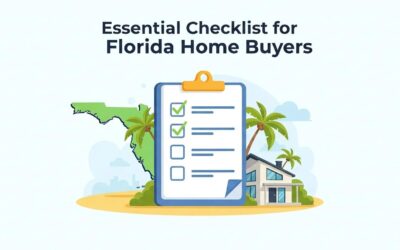Understanding the homebuying landscape requires a sharp grasp of credit mastery and your credit score. These three-digit numbers significantly impact your mortgage options and interest rates. With scores ranging from 300 to 850, higher values indicate less risk to lenders, opening up more favorable loan terms.
To enhance affordability, buyers should improve their scores by paying bills on time, managing credit balances, and understanding the factors that influence their scores. Down payments and loan choices are equally vital, each essential in the journey toward homeownership. By mastering these elements, aspiring homeowners can position themselves for success in achieving their dream home through credit mastery.
Key Takeaways
- Higher credit scores lead to lower interest rates, making home buying more affordable.
- Credit score requirements vary by mortgage type, with conventional loans generally requiring a minimum score of 620.
- FHA loans offer options for those with lower credit scores, requiring as little as 3.5% down with a credit score of 580 or higher.
- Monitoring and managing your credit score can improve loan terms and interest rates.
- VA loans offer flexible options for military members, with minimum credit score requirements and down payment requirements.
Understanding Credit Mastery and Credit Scores
Understanding credit scores is essential, as they are pivotal in determining your eligibility for mortgage programs and the interest rates you’ll receive. A credit score reflects your financial reliability, influencing lenders’ decisions to offer you a home loan. Higher scores signify lower risk, persuading lenders to provide more favorable terms.
This makes achieving and maintaining a good credit score an essential strategy for aspiring homeowners. It’s not just about eligibility; it’s about securing the best possible terms, which can save you a substantial amount over the life of your loan. Educating yourself about how credit scores work and taking steps to improve yours can significantly enhance your homebuying journey, making it more affordable and within reach. Serving others begins with empowering oneself financially, and understanding credit scores is a foundational step in that process.
The Role of Down Payments
Moving beyond the importance of credit scores, it’s essential to explore how down payments play a pivotal role in the homebuying process, influencing both the likelihood of loan approval and the financial terms of a mortgage. A substantial down payment can significantly reduce the cost of borrowing by lowering interest rates and eliminating the need for private mortgage insurance (PMI).
| Down Payment Size | Benefits | Considerations |
|---|---|---|
| 20% or more | It avoids PMI, lowers interest rates | Requires significant upfront capital |
| 10-19% | May decrease interest rates | PMI likely required |
| 5-9% | Accessible to more buyers | Higher interest rates, PMI required |
| Less than 5% | Opens home ownership to many | Highest interest rates, PMI required |
| 0% (VA/USDA) | Limited to qualifying individuals | Limited availability, specific criteria |
Strategizing the size of your down payment is essential for achieving favorable financial terms and making your dream of homeownership a reality.
Conventional Loan Requirements
When considering traditional home loans, potential buyers should be aware that a minimum credit score of 620 is typically required for fixed-rate loans. At the same time, adjustable-rate mortgages usually need a credit score of at least 640. This criterion emphasizes maintaining a solid credit history to access favorable loan conditions.
A higher credit score not only facilitates approval but may also secure lower interest rates, leading to substantial savings over the life of the loan. Prospective homeowners are encouraged to review their credit reports, rectify any inaccuracies, and adopt financial behaviors that strengthen their scores. Demonstrating responsibility through timely debt payments and prudent credit use can significantly improve one’s eligibility for traditional loans, making the dream of homeownership more achievable and financially advantageous.
Crucial Insights to RememberFHA Loan Insights
Federal Housing Administration (FHA) loans provide a viable option for homebuyers seeking cost-effective financing, particularly those with lower credit scores. FHA loans are designed to help individuals achieve homeownership by requiring a minimal down payment of 3.5% for credit scores of 580 or higher. Those with scores between 500 and 579 can still qualify by increasing their down payment to 10%.
This inclusiveness makes FHA loans a great choice for first-time buyers and individuals working to improve their financial standing. Furthermore, FHA loans come with the government’s backing, providing lenders with security and offering borrowers more competitive interest rates. By understanding the flexibility and support FHA loans provide, potential homeowners can navigate the path to purchasing a home with confidence and wisdom.
VA Loan Overview
Offering an invaluable benefit to military members, veterans, and their spouses, VA loans eliminate the need for a down payment and do not impose a strict minimum credit score requirement. This exceptional advantage opens the door to homeownership for those who have served our country, allowing them to secure a mortgage with more flexible qualification criteria than conventional loan options.
VA loans also offer the added benefit of no private mortgage insurance (PMI), which can significantly reduce monthly payments. For individuals dedicated to serving others, VA loans serve as a powerful tool in achieving the dream of homeownership, offering a tangible reward for their commitment and sacrifice. By leveraging this opportunity, veterans and their families can establish a stable foundation for their future, underscoring the nation’s gratitude for their service.
USDA Loan Guidance
USDA loans provide an excellent opportunity for eligible rural and suburban homebuyers to achieve homeownership with little to no down payment required, making it an attractive option for those seeking financial flexibility. These loans are specifically tailored to assist those living in areas considered rural by the United States Department of Agriculture, offering a pathway to homeownership that might otherwise be out of reach. With the potential for 100% financing, USDA loans remove the significant barrier of saving for a large down payment, enabling families and individuals to purchase a home more quickly.
Additionally, USDA loans come with competitive interest rates and lower mortgage insurance costs, making monthly payments more affordable. For those committed to serving their communities by residing in rural areas, USDA loans offer a practical and accessible solution for securing a home without the heavy financial burden typically associated with buying a house.
Navigating Bad Credit Options
While USDA loans provide a pathway to homeownership for those in rural areas, people with less-than-ideal credit scores can also secure a mortgage. Federal Housing Administration (FHA) loans emerge as a beacon of hope for individuals facing challenges due to lower credit scores. These loans are designed to make homeownership more accessible, requiring lower down payments and accepting credit scores below 580, subject to specific conditions.
By opting for an FHA loan, applicants can easily navigate the obstacles of lousy credit, potentially securing a mortgage with a down payment as low as 3.5% if their credit score is 580 or above. This opportunity highlights the importance of exploring all available resources, ensuring that the dream of owning a home remains within reach, even for those working to improve their financial wellbeing.
Factors for Mortgage Approval
Several factors are pivotal in determining mortgage approval, including income verification, job stability, down payment size, debt-to-income (DTI) ratio, and credit history. These elements collectively provide lenders with a thorough view of an applicant’s financial health and the risk of extending a mortgage offer. Understanding these factors empowers potential homebuyers to enhance approval odds and encourages responsible borrowing practices.
- Income Verification: Proof of stable income assures lenders of your ability to make regular mortgage payments.
- Down Payment Size: A larger down payment decreases the loan-to-value ratio, thereby reducing lender risk and potentially improving loan terms.
- Credit History and Score: A strong credit history and score signify lower risk to lenders, often resulting in better interest rates and loan options.
Prioritizing these factors can significantly influence your journey toward securing a mortgage, underscoring the importance of financial preparedness in the home-buying process.
Frequently Asked Questions
How Do Late Payments on Utilities or Rent Affect My Ability to Qualify for a Mortgage?
Late payments on utilities or rent can adversely affect your credit score, potentially hindering your mortgage qualification prospects by signaling to lenders a higher risk of default. Prioritizing these payments is essential for homebuyers.
Can Being Self-Employed or a Freelancer Affect My Mortgage Application Differently Than Being Traditionally Employed?
Handling the mortgage application process as a self-employed or freelancer can be challenging. Thorough documentation of income stability and reliability is required to assure lenders of repayment capability.
How do lenders perceive income and job stability differently between self-employment or freelancing versus traditional employment?
Lenders scrutinize income stability and reliability more closely for self-employed or freelancing applicants than for traditionally employed ones.
Why is this scrutiny heightened for self-employed or freelancing applicants?
This scrutiny emphasizes the importance of thorough documentation and a solid financial profile to secure mortgage approval.
How Do Lenders View Large Deposits or Financial Gifts During the Mortgage Application Process?
Lenders examine large deposits or financial gifts during the mortgage process to verify they are legitimate and not undisclosed loans. Proper documentation is required to demonstrate the source and intent of these funds.
Conclusion
The homebuying process involves several essential steps that potential buyers need to consider. Firstly, people should assess their financial readiness by evaluating their income, credit history, and monthly expenses. This includes understanding their credit report, credit score, and debt payments. It’s essential to determine a realistic price range and consider additional costs such as closing costs, insurance premiums, and unexpected repairs. Potential homebuyers may also need to save up for a down payment and earn an earnest money deposit, as well as a contingency fund for unforeseen expenses.
Once financially prepared, first-time homebuyers can start thepreapproval process for a mortgage loan. They can approach mortgage lenders or loan officers to explore different types of loans and secure a preapproval letter. Understanding loan options, terms, and mortgage rates is crucial in making a well-informed financial decision. Additionally, homebuyers should seek the assistance of a real estate agent to navigate the competitive real estate market, view homes in person, and negotiate a purchase agreement.
As the process moves toward closing, buyers should review the closing disclosure, work with a title company, and ensure they have satisfactory insurance. It’s also essential to have a clear understanding of the closing process, including the role of the closing agent and the types of insurance policies involved. Finally, at the closing table, buyers will need to bring a pile of cash to cover the down payment, closing costs, and any additional expenses.






